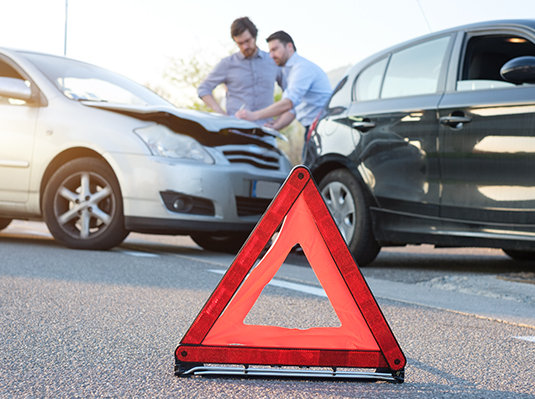
What is the purpose of car insurance?
The purpose of all insurance is to protect you against financial loss. Car insurance specifically protects you in the event of an accident, theft, or weather resulting in a major car repair or loss that will cause you financial strain.
Like anything else you do in life, insurance is an exchange of money for goods and services. In this case, you’ll pay what insurance companies call a “premium”. In exchange, they agree to pay for repairs or damage, as well as any medical bills incurred as a direct result of a car accident.
Is car insurance required?
Almost every state requires car insurance, although the minimum requirements vary. Typically, all states require liability coverage, which is protection against bodily injury and property damage to another vehicle (with the exception of Florida, which only requires coverage for damage).
Which states don’t require you to have car insurance at all? New Hampshire and Virginia, but they have strict rules. In New Hampshire, you can forego car insurance if you can prove you have enough money to meet financial requirements in the event of an accident. In Virginia, you can opt out of purchasing car insurance if you pay an uninsured motorist fee each year—and you’ll still be responsible for paying out of pocket for damages. Regardless, even if your state doesn’t require you to carry car insurance, it is still a recommended practice to ensure you’re appropriately covered.
Why is some car insurance more expensive than others?
Car insurance premiums vary from person to person. When you request a quote from an insurance company or work with an agent, you’ll have to answer several detailed questions about your life and circumstances. This is so the car insurance company can evaluate your unique risks in case you file a claim. An insurance company will be evaluating the following items:
-
Your personal information like age and marital status—they’ll likely use claims history statistics to help identify a rate
-
Information about your vehicle and its reliability—if your car will likely need repairs or is more prone to break down, your premium will be higher
-
Your driving history, like a copy of your driving record and any claims you’ve made in the past—if you have a spotless record, you will likely be rewarded with a lower premium
-
Your financial status, including your credit score—can you pay your premium and is it a higher risk to the insurance company to take you on if you have a low credit score?
-
Your location—are you in a city or area with higher risk for accidents or weather events?
What is typically covered in a car insurance policy?
Your policy will likely include multiple types of coverage, tailored to your circumstances and state requirements. At the very least, your state will probably require you to buy a policy that includes liability coverage.
Liability coverage protects you financially if you cause damage to another car in an accident or if are involved in a lawsuit due to an accident. There are two categories of liability insurance:
-
Bodily Injury Liability: This is the most common requirement. It covers injuries or deaths that you, as the driver or policyholder, cause to other people. The minimum limits are often displayed as two numerical amounts separated by a slash (e.g., $15,000/$30,000). The first number is the maximum payment for a single individual in an accident, and the second number is the maximum payment per accident.
-
Property Damage Liability: This element covers damage you, or someone driving the car with your permission, may cause to someone else's property. Usually, this means damage to someone else’s car, but it also includes damage to lamp posts, telephone poles, fences, buildings, or other structures your car hits.
Required by some states, Personal Injury Protection (PIP) can cover medical expenses, lost wages, and funeral costs regardless of who is at fault in an accident.
What are optional items I should consider for extra coverage?
You can purchase additional coverage such as collision insurance, comprehensive insurance, gap insurance, and more, which can offer broader protection. You should consider these options, since the minimum requirement, liability coverage, doesn’t help pay for repairs to your own vehicle.
Ask your insurance agent about the following options:
-
Collision Insurance: Collision insurance covers the cost of repairs or replacement of your car if it's damaged in a collision with another vehicle or object. This form of insurance comes into play regardless of who is at fault. Collision insurance is different than the required liability insurance because it helps you pay for damage to your property, while liability insurance only pays for damage to others people's property.
-
Comprehensive Insurance: Comprehensive insurance covers damages to your vehicle that aren't caused by collisions. These might include events like fire, theft, vandalism, or natural disasters. It's often referred to as "other than collision" coverage.
-
Gap Insurance: Gap insurance is designed for those who lease their vehicles or have outstanding car loans. “Gap” stands for “Guaranteed Asset Protection”, and it covers the difference between what your car is worth and what you still owe on it in the event that it's totaled or stolen. If you owe more on your car than it's worth and it's destroyed in a covered loss, gap insurance can be a financial lifesaver. It's a common scenario when new cars depreciate rapidly in the first few years of ownership.
-
Uninsured Motorist Coverage: Uninsured motorist coverage reimburses you when an accident is caused by an uninsured motorist—or in the case of a hit-and-run. You can also purchase underinsured motorist coverage, which will cover costs when another driver lacks adequate coverage to pay the costs of a serious accident. Keep in mind that many states require this coverage or would ask for a signed form if you rejected coverage or the selected limits do not match your liability amounts.
-
Rental Reimbursement Coverage: If you heavily rely on your vehicle for daily commuting, rental reimbursement coverage can be invaluable. It covers the cost of a rental car while your vehicle is being repaired after a covered insurance claim. This means that life doesn't have to come to a standstill just because your car is temporarily out of commission.
-
Roadside Assistance: If you ever find yourself broken down on the side of the road, roadside assistance coverage handles towing, battery service, flat tire service, fuel delivery, locksmith service, and more.
Is glass and windshield covered in my policy?
Your car’s glass and windshield is not typically covered in your minimum liability policy. If your glass is damaged by rocks, debris, or animals, you’ll need to have opted into comprehensive coverage to pay for the cost of repairs (after your deductible).
However, if your windshield is damaged in a crash that is your fault, you’ll need to file a claim under collision coverage, which is also a optional addition to your policy.
If you do file a claim for glass damage, evaluate whether the repair cost is higher than your deductible. If you have a low deductible, filing a claim may be worth it. Don’t wait too long to make a claim, as the paperwork should be filed before any repairs happen. If your windshield is not covered by insurance, try to fix the damage anyway, as a cracked window could spread and put you and others on the road at harm.
What is a deductible and how does it work?
A deductible is the amount you have to pay before the insurance company will pay for a repair or replacement. Car insurance policies typically have two separate deductibles: one for comprehensive losses and one for collision losses. You’ll need to pay out the collision deductible when your vehicle hits or is hit by another vehicle or object. You’ll pay out the comprehensive deductible for any other peril that causes damage to the vehicle, like fire, flood, theft, and falling objects. Each car policy will have a specified dollar amount to be paid out in the event of a claim, and on average they fall within the range of $250 to $1,000. If you have a lien, many lienholders will require comprehensive and collision coverage and have certain thresholds on required deductibles.
Most people prefer to have the lowest deductible possible, but this comes at a cost. As deductibles decrease, premiums increase. It is always a good idea to have an agent check the price for multiple deductible options to be sure that you are selecting the best deductible for your situation.
How do I file a claim?
Whether you’re at fault in an accident or filing a claim for a repair, documentation is key. Follow these steps to file a claim:
-
Gather details of all parties involved, photos of the damage and scene, and a police report in the case of an accident.
-
Contact your insurance company as soon as possible for instructions on their specific claims process. Your insurance card should have their contact information.
-
Fill out the claims form. Your insurance provider will either send you a claim form or direct you to an online submission portal.
-
After filing your claim, an insurance adjuster will be assigned to your case. They will evaluate the damage to your vehicle, determine fault based on the evidence, and estimate repair costs. It’s crucial to cooperate fully with the adjuster but refrain from admitting fault or signing any documents without understanding them.
-
Repair your car. Once the adjuster has assessed the damage, they will explain how your insurance company will handle the repairs based on your coverage. Depending on your policy, you may be directed to approved repair shops, or you might choose where to have your car fixed.
After the adjuster’s investigation is complete and repairs are made, your insurer will close the claim. If you disagree with the settlement offer, you have the right to negotiate or seek mediation.
How do I know I’m getting the best policy for me?
If you’re unsure how to navigate purchasing car insurance, work with an independent agent. Independent insurance agents, or agents not affiliated with a single insurance company, can shop several options with your best interest in mind. They’ll work with you to find the right coverage for your circumstance—keep in mind the right coverage may not be the lowest price. If you’re flexible and willing to adjust your premium amount, you may find it makes all the difference when it truly matters.
Visit our Digital Agent to compare quotes and reach out to a Goosehead agent to learn more.
The contents of this article are for informational purposes only. You should not act or refrain from acting based on this information without first consulting a Goosehead licensed agent at service@goosehead.com. We disclaim all liability for actions taken or not taken by you based on the contents of this article which is provided "as is." Goosehead makes no representation that this content is error-free.
Get a Quote


